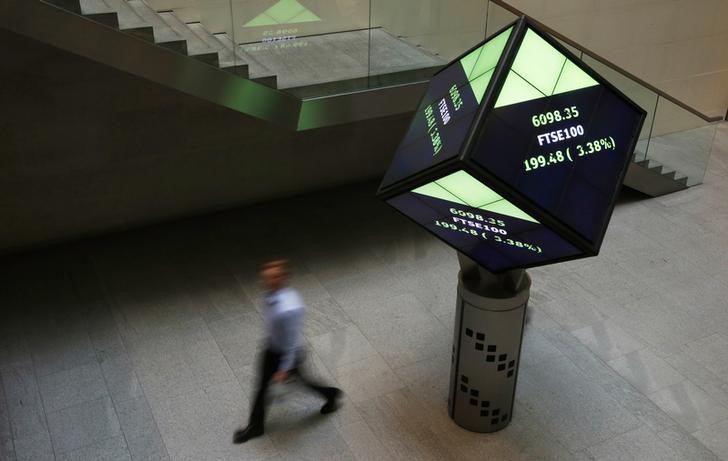Stock market today: Nasdaq closes above 23,000 for first time as tech rebounds
(Corrects company descriptor in paragraph 9 to "fund
supermarket", typos in paragraph 1, 7)
* BoE Governor Bailey says EU-UK trade deal possible
* UK govt mulls fresh lockdowns in northern England
* GVC Holdings surges on raising outlook
* FTSE 100 up 0.2%, FTSE 250 gains 0.5%
By Shashank Nayar
Oct 8 (Reuters) - British midcaps rose to their highest
levels in nearly two months on Thursday following the Bank of
England Governor's upbeat views on Brexit and as a slew of
corporate results showed signs of improvement.
Bank of England Governor Andrew Bailey said he believed
Britain and the European Union should be able to reach a trade
deal, and that he did not expect the new wave of COVID-19 cases
to be as damaging as the first. Capping the market's gains, however, Prime Minister Boris
Johnson's government said it is considering additional local
COVID-19 restrictions for parts of northern England as the
second wave of the novel coronavirus accelerates. The mid-cap index .FTMC , considered a barometer for Brexit
sentiment, gained 0.5%. Electrocomponent ECM.L was one of the
biggest boosts after it said it expects the virus' impact to
ease in the second half of the year. The blue-chip index .FTSE gained 0.2%.
"With hopes of some support from the U.S. and with the pound
going up, it has given the market an idea of some positive
developments on the Brexit front which also helped mid-caps gain
as they are better geared towards Brexit news," said Chris
Bailey, a strategist at Raymond James.
In an earnings-heavy day, Ladbrokes and bwin owner GVC
Holdings GVC.L surged 7% to a two-year high as it raised its
outlook for annual core earnings after posting a 12% rise in its
revenue for the third quarter. British tobacco company Imperial Brands IMB.L rose 1.3% on
forecasting its full-year net revenue to be broadly flat and in
line with market estimates. Fund supermarket Hargreaves Lansdown HRGV.L dropped
3%after it said it took in 800 million pounds of net new
business in the quarter to Sept. 30, but also said it saw
weakening investor sentiment arising from COVID-19 and Brexit
uncertainties.
